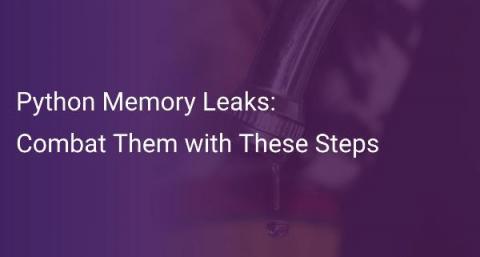Systems | Development | Analytics | API | Testing
Python
Integrate Login to Your Python-Flask Applications Using Asgardeo
In our final year as undergraduates, we researched how to use human affect and behaviors to anticipate threats posed by other humans. We built a simple website that demonstrated the capabilities of the model we designed.
Building a geocoding plugin for the Kong Gateway using Python
Recently, I came across a request from one of our community users looking for a Kong plugin that could look up address details based on a few location search keywords. There are many libraries that support geocoding. I decided to pick up a Python Library as they are simple to use — and the Kong Gateway supports plugins written in Python since version 2.3.
Overcoming the Top Challenges for Python Beginners
Do you want to learn Python as your first programming language? Then you’ve made a great choice. Python is a popular, general-purpose programming language that can be used for a whole host of applications. But, it’s not without its challenges. To find out more about these challenges and how to overcome them, keep reading …
Local Tests With Selenium And Python Browser Automation
There are various reasons for running Python browser automation tests locally, the most common one for us is saving time. Loadero test runs usually take no more than 5 minutes to initialize and start execution but can reach up to 10 minutes or more depending on how busy is the test run queue. To increase the speed of development, it’s often quicker to create the test script on your local machine and then run tests on Loadero.
Popular Python Design Patterns
Python is one of the hottest programming languages in the world right now. According to StackOverflow’s Developer Survey 2021, Python is the third most popular programming language. It is primarily due to its easy-going syntax coupled with powerful dynamic typing and binding. In this article, we will focus on building efficient and scalable applications in Python using popular design patterns. Design patterns are standards or conventions used to solve commonly occurring problems.
6 Reasons Why Python Is Best for Apps Using AI, ML and Data Analytics
There are a variety of technology stacks for Artificial intelligence (AI), Machine learning (ML) and data analytics applications. However, the ideal programming language for AI must be powerful, scalable and readable. All three conditions are met by the Python programming language. With outstanding libraries, tools and frameworks for AI, ML and data analytics, Python has proven success leveraging all three technologies.
How to Combat Python Memory Leaks
Memory leaks are one of developers’ worst nightmares. They can easily take down a healthy running application within hours if not minutes. It can be difficult to detect some of such leaks since they slowly grow and take over your app’s available memory. On top of it, each programming language manages memory in its own unique ways and hence can leak memory in different ways. Hence proactive measures to identify and prevent such leaks from happening is crucial.
Why Python 2.7 Will Never Die
Python is a programming language originally developed in the late 1980s. Since then, it has seen continuous growth and remains one of the most popular programming languages, especially in data science. Many programmers learn Python as their first language, and it has a wide range of uses. Its second iteration, Python 2.0, landed in 2000, after extensive development throughout the 90s.
How to Improve Flask Performance
Flask is the most popular micro-framework for web programming in Python. Known for its lightweight build and flexibility, it is a fan favorite amongst beginners because of how easy it is to get started with, especially for building prototypes and small-scale projects. Even though Flask is one of the faster frameworks out there, there’s almost always scope for improving performance in web applications. Things might run fine when you serve minimal, static websites with ample compute resources.











